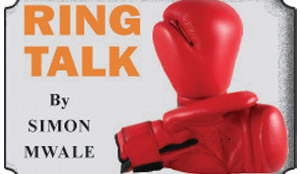 IN 1971, Joe Frazier shook the world by beating Muhammad Ali.
IN 1971, Joe Frazier shook the world by beating Muhammad Ali.
This was after the legendary Ali had returned to the ring four years after the politicians put him out of boxing for his refusal to be conscripted into the US army to fight in the Vietnam War.
A piece I came across this past week titled “When the mountain came to Muhammad” by Hugh McIlvanney of The Observer, is a reflection of Ali’s post-fight trauma in which he concedes that he might have taken himself a bit too much for granted as far as physical fitness or conditioning goes for that fight.
Newspaper stories which gave the impression that he was ranting about having been robbed were ridiculous distortions. During an hour and a half in his hotel suite on the twenty-fifth floor of the New Yorker Hotel on Tuesday, Ali corrected several interviewers who called him “champ”.
“I ain’t the champ,” he said quietly. “Joe’s the champ, I call him champ now, not before but I do now. I ain’t protesting’. He’s a good, tough fighter. Not a great boxer, but great at his own thing.
He puts pressure on you all night, cuts off the ring, and he’s the best hitter I ever met. I always thought of him as a nice fella. What I said before, (bragging about whipping Frazier) that was to do with the fight. Just the fight.”
Ali was lying back low in an armchair that had been placed to suit the television crews that had just left. His eyes were heavy and his voice was subdued.
He said he was sore rather than tired. The worst pain was at the top of his right hip, where Frazier’s left hooks had made regular contact.
They had hurt him more and there than in the body, he said, contradicting those who had concluded wincingly at ringside that he would be “pissing blood for a week.”
His hands were sore and he extended his right one lightly clenched when anyone wished him luck. He would talk quietly for a while and then fall into silence, glancing absently through a newspaper.
Ali had more practical explanations of what went wrong. “If I knew then what I know now I would have done different. If I knew I was going to lose those rounds when I played about I wouldn’t have fooled around so much.”
This came across as wishful rationalisation of something that was forced upon him. Such contradictions, the tendency to submerge yesterday’s facts in today’s feelings, come naturally to him.
He is an existential thinker. The truth is that the use he made of his equipment in this fight, though inevitably riddled with all kinds of dangerous exaggerations, was basically the approach that offered him the best hope of winning.
“No one knew better than he did that his legs had lost the elastic agility and inexhaustible fluency they once had,” writes McIlvanney.
“He knew he could not invalidate Frazier’s strength and rhythm by the once favourite technique of “surrounding” his man, dancing outside the range of his opponent’s punches while using his speed, reach and precise timing to pour in his own.”
At his best that unequalled mobility had made him as secure as a dive-bomber attacking a wagon train. “But a long look at his training in Miami had left me sadly convinced that his foot speed was a memory, that against Frazier he would be obliged to fight flat-footed for much of the time.
“It was equally obvious that if he allowed this realisation to commit him to a straightforward slugging war, there would be only one winner and it would not be Ali.
He had always sought, and always previously found, a highly specific solution to the problems posed by each opponent, and here he appeared to decide that he had more of chance of overwhelming Frazier with his personality than with his pared-down talent.
In the past he has concentrated on psyching himself into invincibility. Here the emphasis was on psyching Frazier out of belief in himself.”
Boxing positively is much more tiring than boxing negatively. Ali knew that if he tried to attack vigorously in every round he would burn out fast. He was more confident of his endurance than his destructive strength, so he gambled on breaking Frazier’s spirit rather than his body. It was the boldest bluff imaginable.
“When you get as big as I got in this game,” Ali said, “ you get intoxicated with so-called greatness. You think you just have to run three miles a day. That’s all I did for this fight. And I didn’t rest properly, didn’t train as hard as I used to.
You convince yourself you’ll get by on natural talent, that it will all just explode in there on the night. But it don’t. Next time I’d run more, get the legs right. That would make it different.”
As multi-division titlist Esther Phiri returns to the ring, I thought she and others in her position could take a leaf from what happened to ‘the greatest.’
The Zambia Professional Boxing and Wrestling Control Board truly welcomes her back to the ring.
But speaking for myself, and not for the board, I’d advise her that two years out of the ring is a long period and she will need to avoid living on past glory and train very seriously, get her enthusiasm and conditioning-both physical and mental-back, psyche herself as if she were starting boxing for the first time.
Ali said: “I’ve never thought of losing, but now that it’s happened the only thing is to do right.”mwale.simon@yahoo.co.uk / 0966 755 574






